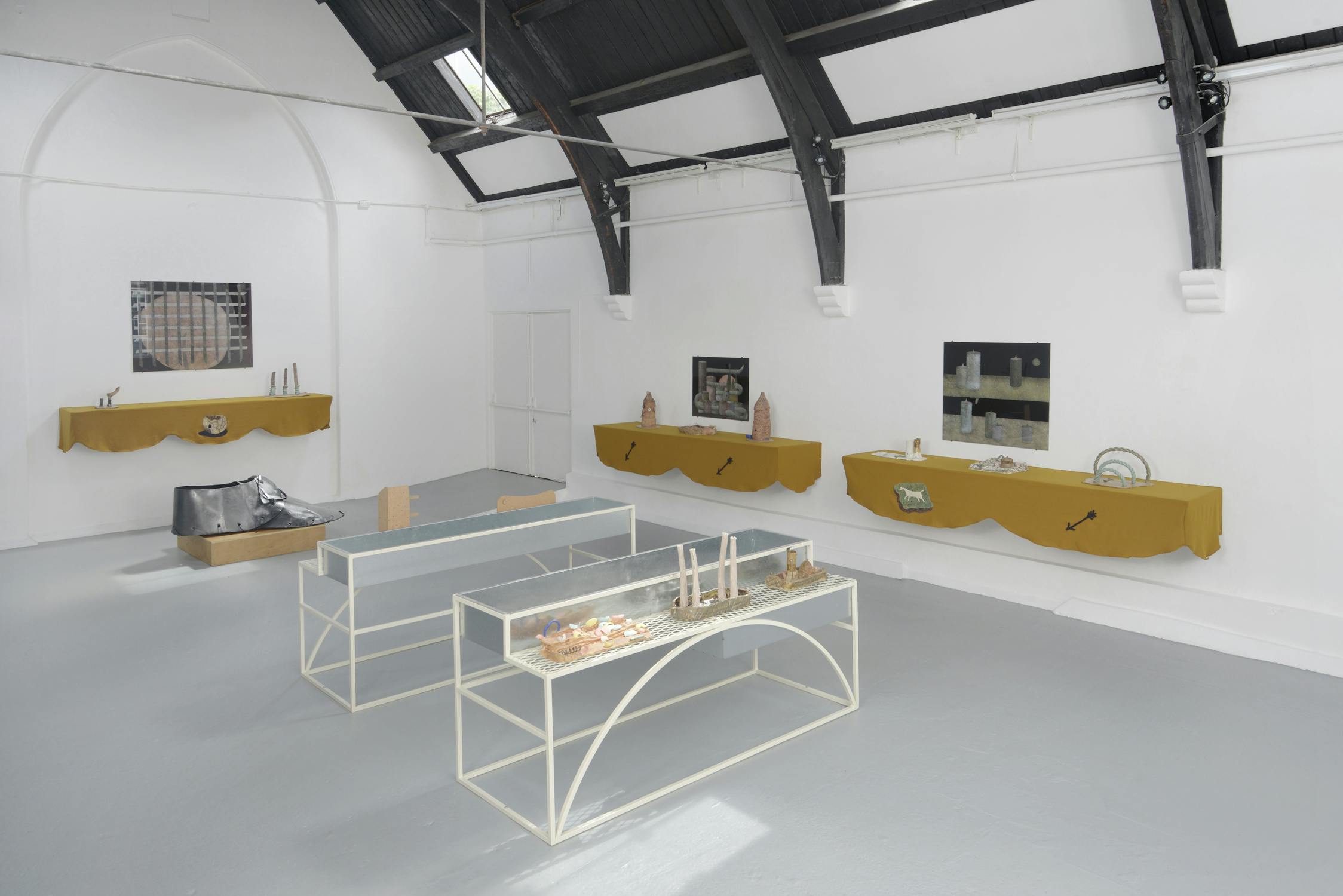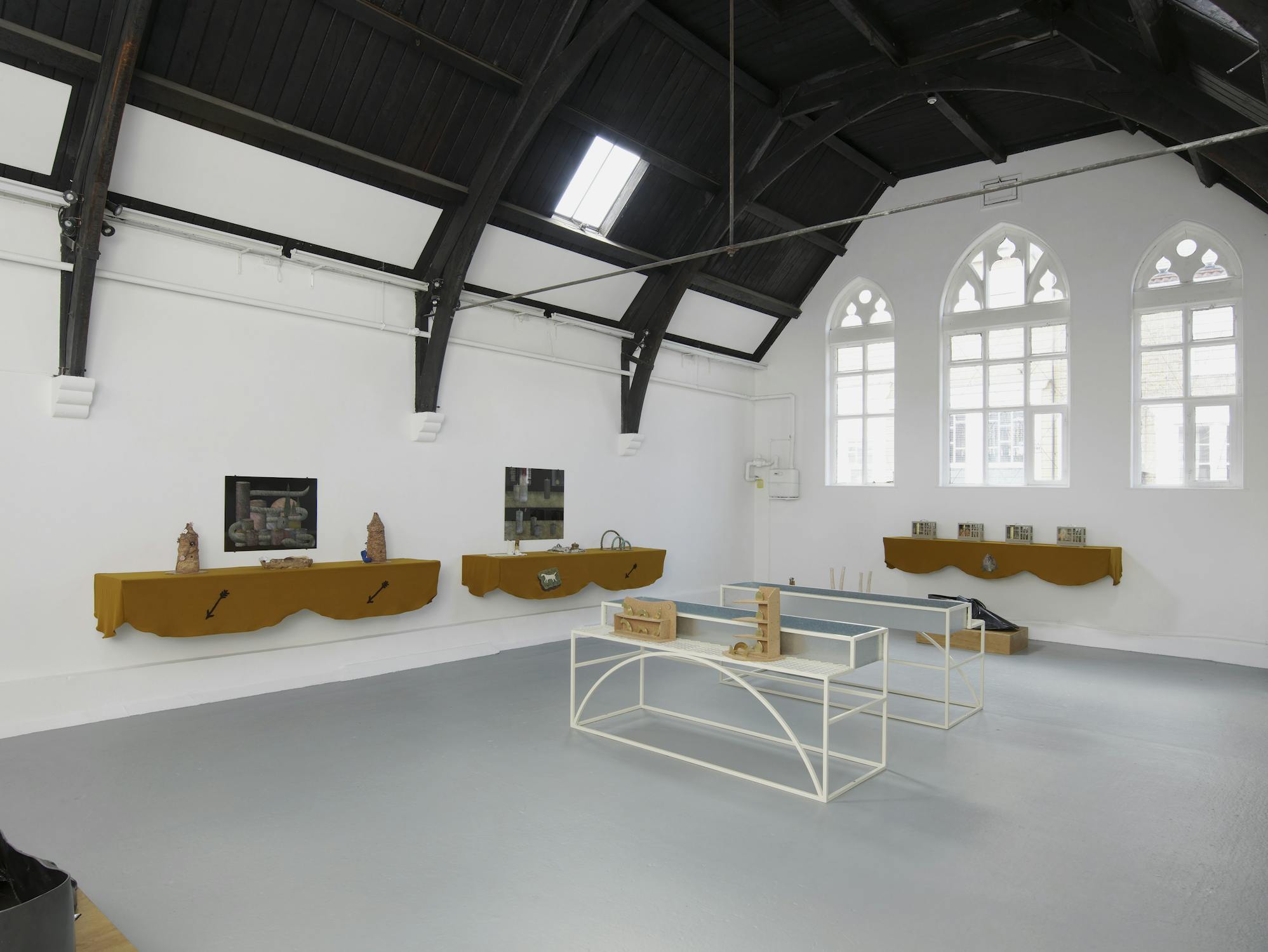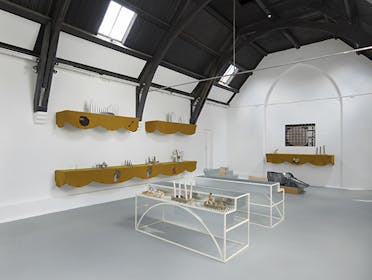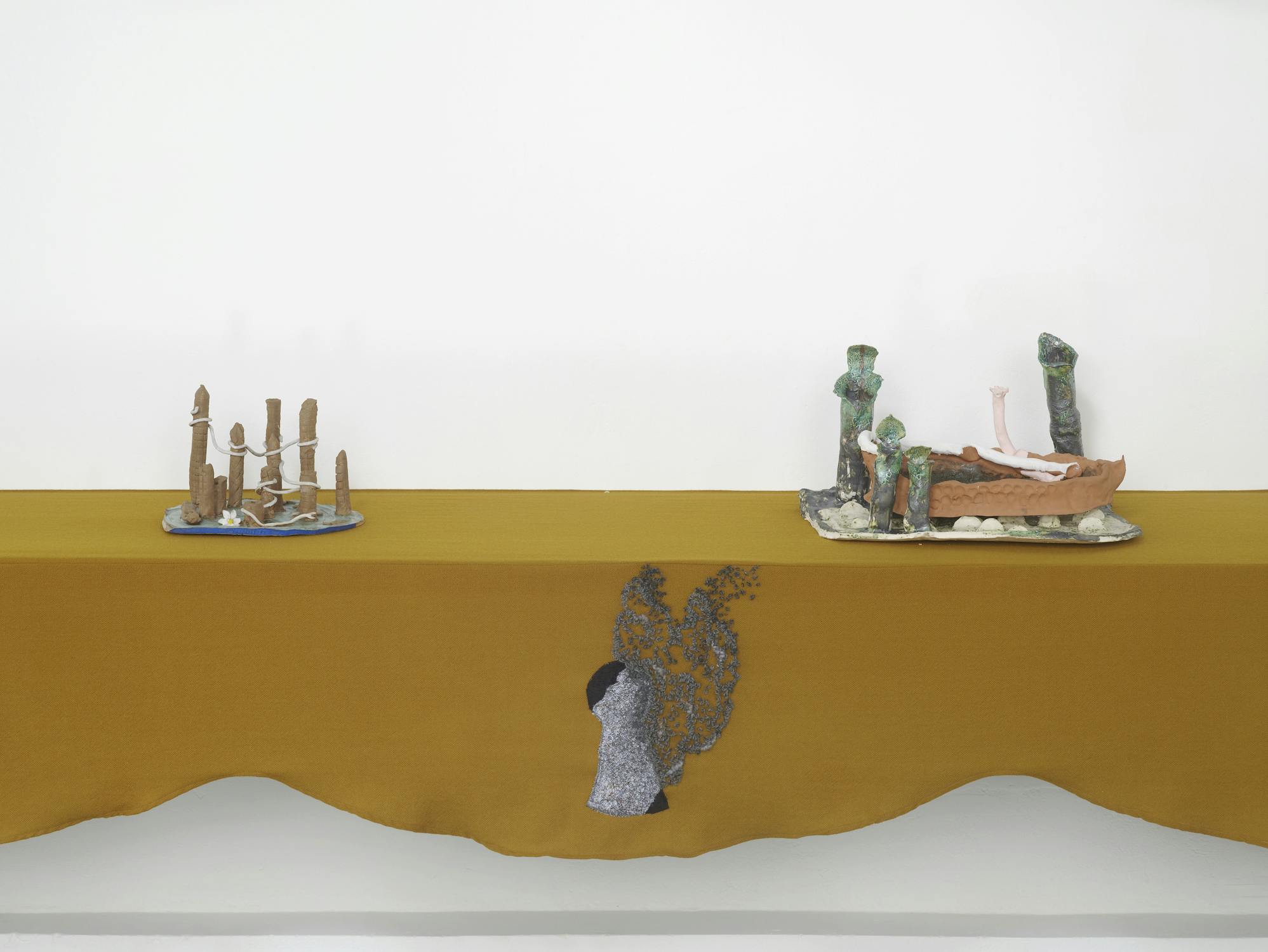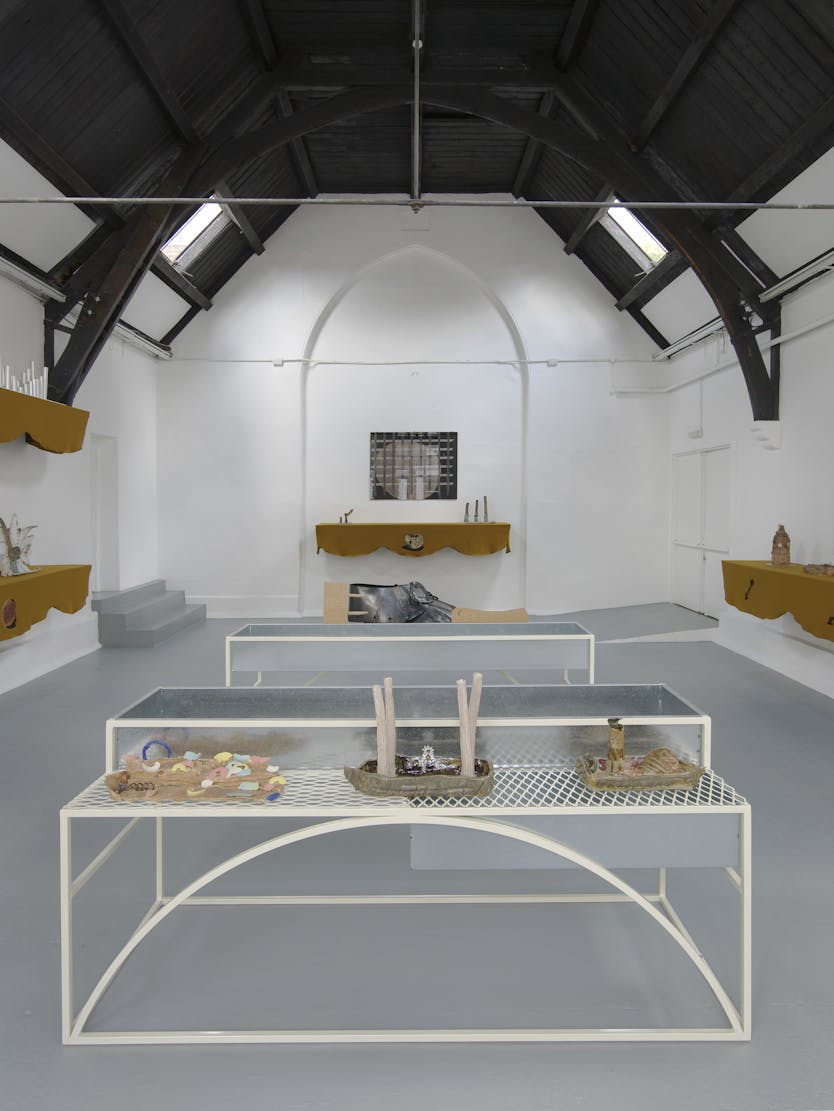Aaron Angell (b. 1987, Kent) lives and works in London. He is the founder and director of Troy Town Art Pottery hosted by Open School East, a radical and psychedelic ceramic workshop for artists founded in response to dwindling ceramics access in London, and to frustration with the established models of ceramic production. Recent solo shows include: Grotwork, Studio Voltaire, London (2015); Bumpkin, Rob Tufnell (2012); Put John Barleycorn in the old brown jug, Croy Nielsen, Berlin (2012); and The Devil’s Arse, [space], London (2011). Recent group exhibitions include: British Art Show 8, Leeds Art Gallery (October 2015); and forthcoming exhibitions include: Tate St Ives (Summer 2016). Angell is represented by Rob Tufnell, London.
Aaron Angell
Grotwork
Grotwork was a new large-scale commission of sculpture and painting by British artist Aaron Angell.
Angell works primarily with ceramics, producing sculptural tableaux referencing hobbyist cultures, naturalistic forms, and the underground hand built ceramics of Britain from the 1970s and 80s. Angell is interested in marginal forms of image making and hopes to encourage new ways of thinking about the culturally nuanced history of ceramics by focusing on the material as a vehicle for sculpture. This exhibition came at a time when folk and craft practices were finding increasing relevance and appreciation in the UK. Through his practice, Angell is eager to contribute to a wider understanding of ceramics within an artistic framework that sits outside a traditional craft-based discourse. In his own words Angell wants to ‘flatten the material’, looking beyond the medium to view the works as autonomous sculptures, and rehabilitating ceramics not as a material suffused with its own history, but as one of pragmatism, economy, and intuition.
For his Studio Voltaire commission, Angell presented his most ambitious body of work to date, demonstrating the variety of his practice by experimenting with a range of previously unexplored materials and processes. In the artist’s own words, the exhibition is ‘mostly about the chalk horse at Cherhill and its connections with my ancestor Farmer Angell, the only four magnolia seed fossils ever found in England, D.M. Black’s poem Without Equipment and Bram Stoker’s awful final novel The Lair of the White Worm’. Angell is interested in manipulating imagery from a ‘psychic compost’ in which elements are rejected, fermented and rotted down to form a dense stream of co-dependent motifs.
‘Grotwork’ is a colloquial term referring to the 18th Century horticultural trend of accumulating Stucco and imported Italian Tufa to produce artificial grottoes. Grotwork also acts as an allegory of Angell’s practice, as one of systematic accretion and editing, and as a physical allegory to his reverse-painted glasses, which are painted via hundreds of flecked layers of paint.
Angell was awarded the Hospitalfield Autumn Residency 2014, funded by Creative Scotland under their Creative Futures strand. Angell used this residency and production bursary to prepare for his Studio Voltaire commission. This commission was supported by Arts Council England, Grants for the Arts; The Henry Moore Foundation; and Hospitalfield Arts.
Aaron Angell in conversation with Sam Thorne, Artistic Director, Tate St Ives.
Aaron Angell, Grotwork, 2015. Installation View, Studio Voltaire, London. A Studio Voltaire commission. Courtesy of the artist and Rob Tufnell, London. Photo: Andy Keate.
